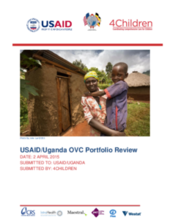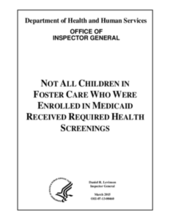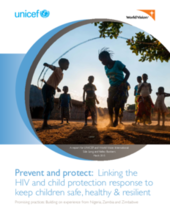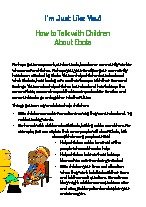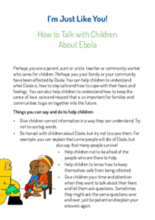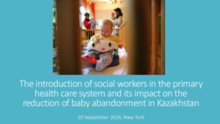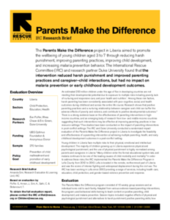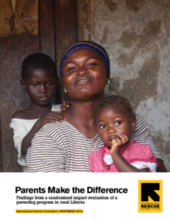Displaying 141 - 150 of 243
This study was designed to evaluate the effectiveness of a family-level economic strengthening intervention with regard to school attendance, school grades, and self-esteem in AIDS-orphaned adolescents aged 12-16 years from 10 public rural primary schools in southern Uganda.
This document, developed through a mapping exercise conducted by the National Council for Children’s Services (NCCS) and the Department of Children Services (DCS) of Kenya, provides a comprehensive list of the agencies and programs in Kenya that provide services for children.
This portfolio review of OVC programming in Uganda focuses on several priority issues, including: (1) targeting case management and referral mechanisms; (2) graduation; (3) links with HIV/AIDS care and treatment partners; and (4) overall coordination amongst implementing partners.
The Office of the Inspector General at the Department of Health and Human Services in the USA conducted a study, focused on four states in the US, to determine whether children in foster care received initial and periodic health screenings as established in each State’s plan.
This report from UNICEF and World Vision International documents country level approaches that respond to HIV and child protection challenges facing children and adolescents by linking both those responses.
This caregiver guide, which accompanies an illustrated children’s book, is written for the caregivers of children affected by the Ebola crisis.
This downloadable children’s book, accompanied by a caregiver guide, is written for the children affected by the Ebola crisis, their caregivers and communities.
On 10 September 2014, UNICEF and the Permanent Mission of Bulgaria co-hosted a high level Lunchtime Discussion on The right of children below three years to live in a caring and supportive family environment: examples from Central and Eastern Europe and Central Asia. In its presentation at the discussion, Kazakhstan demonstrated how the integration of social workers and outreach services in the health sector is reducing baby abandonment in pilot areas of the country.
This research brief provides an overview of an impact evaluation of the “Parents Make the Difference” program, conducted by the International Rescue Committee (IRC) and research partners at Duke University. The “Parents Make the Difference” program is a parenting intervention aimed at promoting the well-being of children in post-conflict Liberia.
This report presents the findings from an evaluation of the “Parents Make a Difference” program, conducted by the International Rescue Committee and research partners at Duke University. The Parents Make a Difference program is an intervention that serves families in post-conflict, Lofa County, Liberia.

